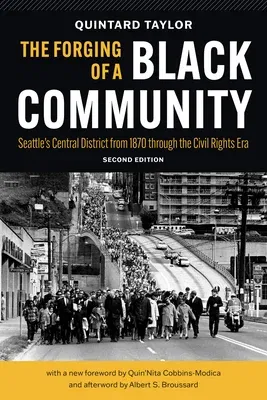Quintard Taylor
(Author)The Forging of a Black Community: Seattle's Central District from 1870 Through the Civil Rights EraHardcover, 7 June 2022

Qty
1
Turbo
Ships in 2 - 3 days
In Stock
Free Delivery
Cash on Delivery
15 Days
Free Returns
Secure Checkout

Part of Series
Emil and Kathleen Sick Book Western History and Biography
Print Length
426 pages
Language
English
Publisher
University of Washington Press
Date Published
7 Jun 2022
ISBN-10
0295750642
ISBN-13
9780295750644
Description
Product Details
Author:
Book Format:
Hardcover
Country of Origin:
US
Date Published:
7 June 2022
ISBN-10:
0295750642
ISBN-13:
9780295750644
Language:
English
Location:
Seattle
Pages:
426
Publisher: